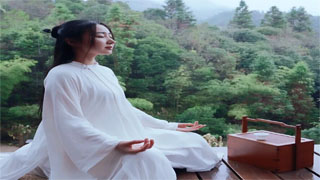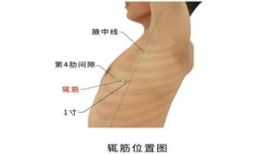
The sage is regarded as a person who does nothing, enjoys the power of tranquility and tranquility, and desires to be content with the defense of nothingness. Therefore, his lifespan is infinite, and he will end up with heaven and earth. This sage's governance is also the fifth chapter of the Yellow Emperor's Inner Canon, Su Wen, Yin Yang Ying Xiang Da Lun
The secret of a sage's health preservation is "to enjoy the power of tranquility and tranquility for the sake of doing nothing." Here, I will explain again and share with you what this wuwei means. Wuwei, advocated by Laozi, is called "for Wuwei, Wuwei without doing anything". Therefore, since ancient times, everyone has had different understandings of Wuwei.
Medical experts like Zhang Jiebin, also known as Zhang Jingyue, mainly explain in the "Yin Yang Class II" section of the "Lei Jing" that "non action is the way of heaven and earth, and tranquility is the joy of nature." He said that non action is the way of heaven and earth, and tranquility is the joy of nature. He continued, saying, "Laozi said, 'The Taoist is the one who does nothing and does not do anything.' He also said, 'Man follows the earth, the earth follows the heavens, the heavens follow the Tao, and the Tao follows nature. What is natural is the way of doing things calmly and unremarkably.' Zhuangzi said, 'Heaven does not do anything to make things clear, and the earth does not do anything to make things peaceful. Therefore, the two do not do anything together, and all things are transformed. The light shines on the light, but there is no way out! The light shines on the light, but there is no way out! All things have no reproductive function. Therefore, it is said that heaven and earth do nothing and do not do anything. Who can achieve non action?' The words of the two sons are based on this. As Guan Yinzi said, only those who have the Tao can do it. The meaning of being able to do it without doing it." This is Zhang Jingyue's understanding.
Zhang Jingyue first quoted Laozi's words, which are "To do nothing without doing anything, to follow the law of the earth, to follow the law of heaven, to follow the law of heaven, and to follow the law of nature." This is what Laozi said. He quoted the words of Zhuangzi again, because Lao and Zhuang represent Taoism. Zhuangzi is even more elegant, as you can tell from reading 'Zhuangzi'. His imagination is extremely rich, his length is also long, and his articles are free and easy. Zhuangzi believed that "the state of non action in heaven leads to clarity, and the state of non action in earth leads to clarity. This is called the state of heaven being clear and the state of earth being clear." Only when heaven and earth are clear and peaceful can all things be transformed, that is to say, the more non action there is, the stronger the transformation of heaven and earth.
Our human body is the same, the more inactive and pure our brain is, the stronger our body's ability to function. So all things in our world are formed by the transformation between heaven and earth, that is, nature. The ancients said that heaven and earth are actually nature, naturally formed. Therefore, it can be said that the words of the two sons, Laozi and Zhuangzi, are all based on this point.
The ability of Le Tian Dan, he said, is Yin Xi. When Laozi left the pass, Yin Xi was the official guard of Hangu Pass. He was in charge of the person in Hangu Pass. He said, "Only a Taoist can do it, and he can also do it without doing it." This is Zhang Jiebin's understanding of this word, which is the ability of Le Tian Dan. This ability is something you can do, but easily do not do, but you have this ability. That's what he means. The sage referred to in this passage is the practice of non action, which is consistent with the concept of "tranquility and emptiness, and true qi follows from it" discussed in the "Treatise on the Innocence of the Ancients." As I mentioned earlier, it also corresponds to the idea of breathing essence and independently guarding the spirit. So after reading the Yellow Emperor's Inner Canon, you need to connect it together before and after, and the more you read, the clearer it becomes, because it is integrated and connected.
There is also an understanding of this passage in Volume 2 of the Annotations to the Collection of Su Wen, which quotes the words of Gao Shizong: "This section corresponds to the sage who guards the heavens and does not engage in external affairs, and there is no inner worry of thoughts. To work with peace and contentment, and to achieve success through self satisfaction. The spirit never disperses, yet it can guard the heavens and earth, with no end in sight Upon hearing this, everyone is very familiar with this sentence. Isn't it the passage from the Yellow Emperor's Inner Canon: The Theory of Ancient Innocence? Do you all remember? There is a passage in the "Treatise on the Innocence of the Ancients" that goes like this: "Secondly, there are saints who are at the harmony of heaven and earth, adapted to the principles of the Eight Winds, and are suitable for the world. They have no anger or resentment, do not want to leave the world, are obedient, do not want to observe the world, do not work on the outside, and have no mental troubles inside. They take pleasure as their task, take self satisfaction as their work, do not become weak in form, and do not lose their spirit. They can also be numerous." This passage is actually corresponding to what we just talked about, that saints are capable of doing nothing and enjoying tranquility. What is said corresponds to it. So we need to read the Yellow Emperor's Inner Canon together, and once we read it together, we will understand it.
There is a word behind it called 'The Defense of Nothingness', so this passage is' From the desire to fast to the defense of Nothingness'. What does the defense of nothingness mean? Many people believe that this guardian is written incorrectly and should be the universe's universe. Because the ancient book was carved on bamboo slips, it is very likely that there were mistakes in the process of transmission or copying. Those who hold this understanding say that the book "Suwen Zhengyi" states that "the meaning of words does not correspond, but should be regarded as the universe." This is the universe's universe. The meaning is' residence ',' dwelling ', and' yu 'means' dwelling'.
The sentence 'And lean on the sweat filled house' in the Huainanzi · Chuzhen Xun has a similar meaning. The annotation by Gao Xiu explains that "Yu, Ju." The two characters "Yu" and "Shou" have very similar forms, so they are mistaken for "Shou. Actually, I think 'to be content with the emptiness of desire' is correct, because if you can't keep quiet, don't you follow your own desires? From one's own desires, the more desires there are, the deeper the craving, the shallower the natural mechanisms. The natural mechanisms cannot be activated, and one cannot enter the innate realm. Therefore, it is impossible to "enjoy the power of tranquility and do nothing." Therefore, this understanding is also correct. However, this view holds that the character 'shou' is also the character for 'yu' in the universe, which makes sense. Therefore, in the process of copying the 'Tanyu' in the Book of Rites in the Records of the Grand Historian, 'yu' was also passed down as the character for 'shou'. Therefore, many scholars believe that mistaking this initial character for 'yu' or 'yu' as the character for 'shou' can occur in different classics. So this place specifically mentions the connection and difference between Shou and Yu.
In summary, by connecting this passage, we can understand the sage's secret to health preservation, which is to clear the mind, reduce desires, and keep our body and mind in a peaceful and tranquil state forever. How to use it? Of course, as an ordinary person, it is essential to maintain sufficient sleep in order for the body to gradually recover and repair. This is a fundamental aspect. In our daily work and life, when we feel tired and exhausted, we need to take a break and close our eyes at a convenient time outside of work. If you sit at a table with the conditions, and the middle fingers of these two hands just block the ears and close the eyes, this is called blind listening. Wait for five or ten minutes, and then open your eyes again after five or ten minutes. You will feel your energy restored and full again. This is the method of "small charging", which I call "small charging". Big charging "refers to sleeping every night. There is also a "medium charging" method, which is to take a fifteen minute nap every day at noon. This is also a charging method, which is to take a nap. In this way, we can maintain a state of high energy and vitality throughout the day. For our body, it is very helpful to achieve the goal of "working hard to rejuvenate, and being strong is beneficial for healing".
Disclaimer: This article is a sharing of health knowledge. The drugs, prescriptions, acupuncture and moxibustion and other treatment and health preserving methods mentioned in this article should be applied under the guidance of professional doctors, and should not be applied by yourself. We are not responsible for any issues arising from improper use.


